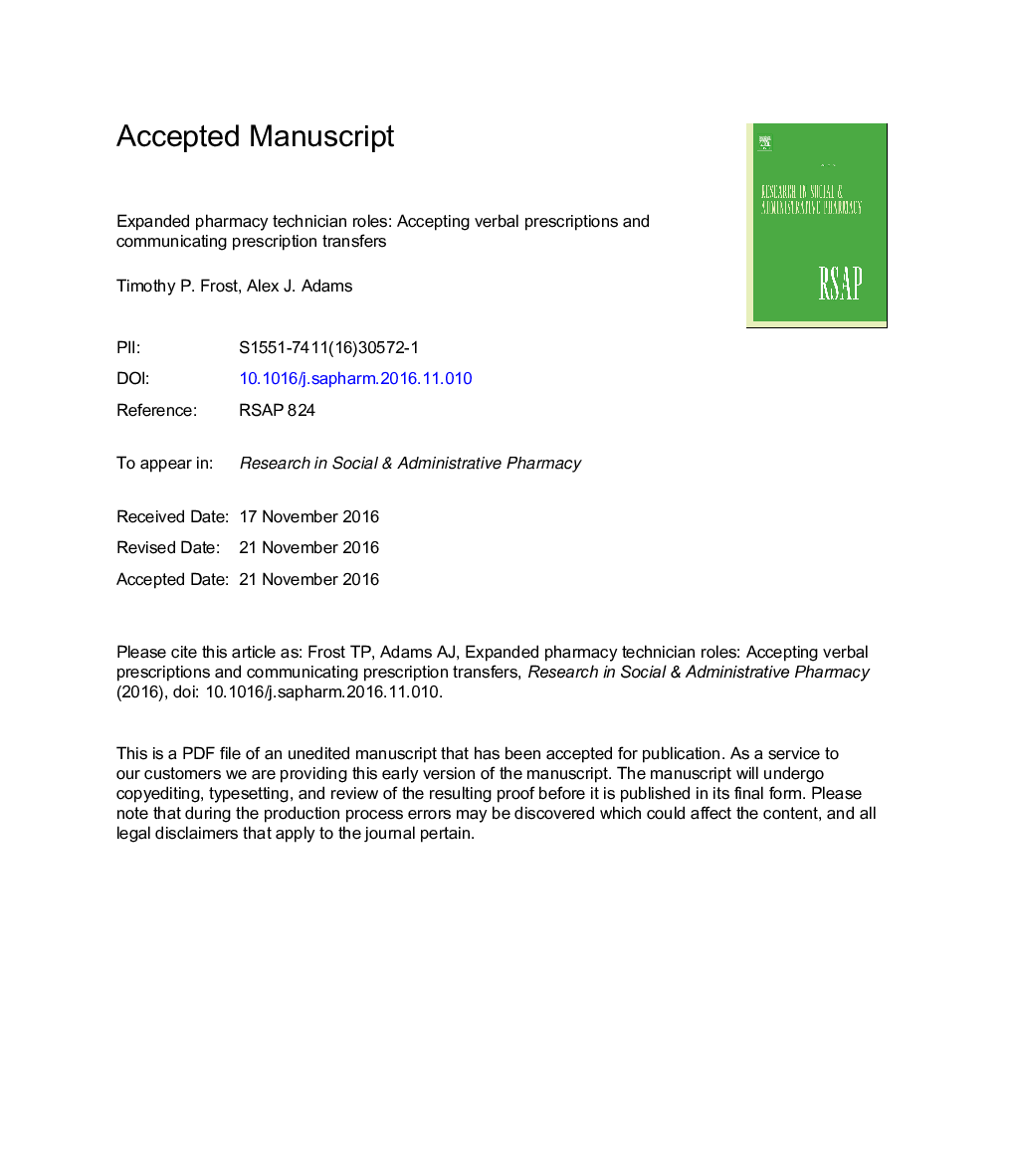| Article ID | Journal | Published Year | Pages | File Type |
|---|---|---|---|---|
| 8522246 | Research in Social and Administrative Pharmacy | 2017 | 21 Pages |
Abstract
As the role of the clinical pharmacist continues to develop and advance, it is critical to ensure pharmacists can operate in a practice environment and workflow that supports the full deployment of their clinical skills. When pharmacy technician roles are optimized, patient safety can be enhanced and pharmacists may dedicate more time to advanced clinical services. Currently, 17 states allow technicians to accept verbal prescriptions called in by a prescriber or prescriber's agent, or transfer a prescription order from one pharmacy to another. States that allow these activities generally put few legal limitations on them, and instead defer to the professional judgment of the supervising pharmacist whether to delegate these tasks or not. These activities were more likely to be seen in states that require technicians to be registered and certified, and in states that have accountability mechanisms (e.g., discipline authority) in place for technicians. There is little evidence to suggest these tasks cannot be performed safely and accurately by appropriately trained technicians, and the track record of success with these tasks spans four decades in some states. Pharmacists can adopt strong practice policies and procedures to mitigate the risk of harm from verbal orders, such as instituting read-back/spell-back techniques, or requiring the indication for each phoned-in medication, among other strategies. Pharmacists may also exercise discretion in deciding to whom to delegate these tasks. As the legal environment becomes more permissive, we foresee investment in more robust education and training of technicians to cover these activities. Thus, with the adoption of robust practice policies and procedures, delegation of verbal orders and prescription transfers can be safe and effective, remove undue stress on pharmacists, and potentially free up pharmacist time for higher-order clinical care.
Related Topics
Health Sciences
Medicine and Dentistry
Public Health and Health Policy
Authors
Timothy P. Frost, Alex J. Adams,
